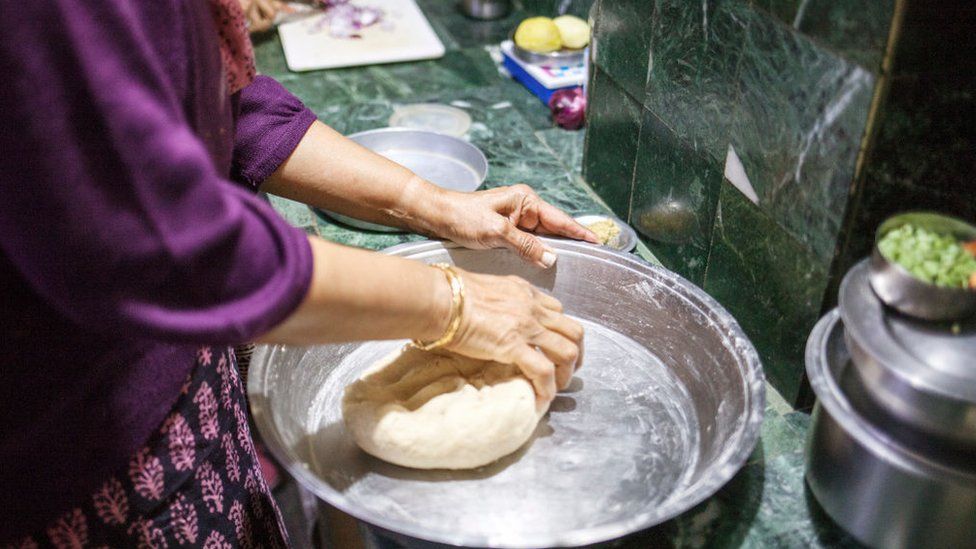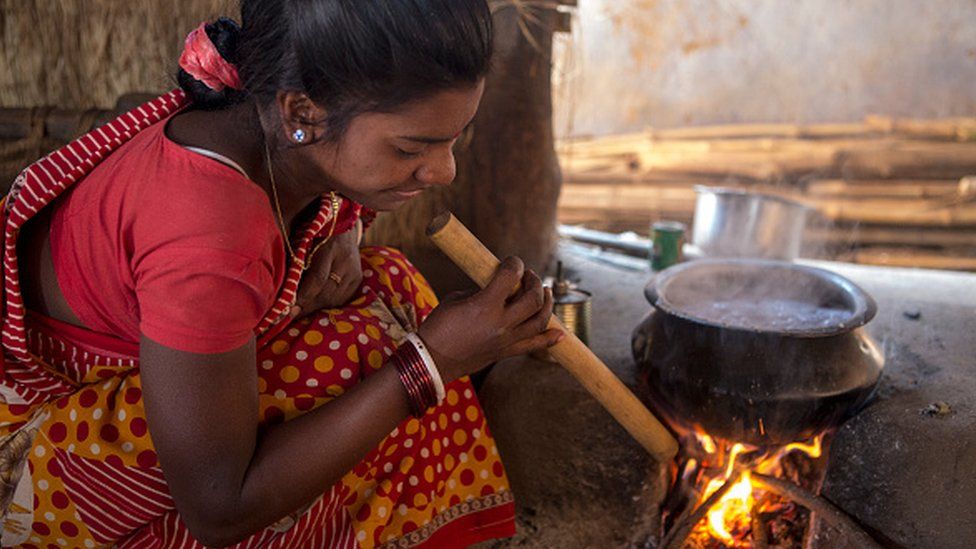Advocates for women's rights have hailed a recent judgment by an Indian court that significantly expands the rights of housewives over their husband's property as a positive development.
In a case involving a domestic dispute, the Madras high court in the southern state of Tamil Nadu decided on June 21 that a housewife was entitled to an equal share of her husband's property.
The contribution of a housewife to the husband's income has reportedly never before been formally acknowledged by an Indian court, according to experts. However, they make the point that the decision is not legally binding on other states unless and until the nation's Supreme Court makes a decision in the same vein in the future.
It involved a 1965 marriage between a couple from Tamil Nadu. The husband moved to Saudi Arabia in search of employment after 1982. His wife, who remained in India and didn't have a job, used the money the husband sent home to purchase a number of assets, including jewelry and real estate.
The man claimed that upon his return to India in 1994, his wife was attempting to claim sole ownership of all of their assets. Additionally, he asserted that she was hiding her gold jewelry and that she wanted to sell a valuable possession by granting power of attorney to a person with whom she was allegedly having an affair.
Five assets were in contention. Four were assets purchased in the woman's name, including a home and a piece of land. The fifth installment included sarees, jewelry, and gold cookies that the man had given to his wife.
The man sued a trial court in 1995 to assert ownership of all five assets, including the gifts he had given her that belonged to her.
He asserted that the woman merely served as a trustee for him and that he had purchased all the assets with his own funds.
After his death in 2007, his children continued the claim.
In its ruling, the court stated that the wife's domestic work had contributed equally to the acquisition of family assets.
According to the statement, "both are entitled equally to whatever they earned by their combined effort," regardless of who contributed more—the husband by working or the wife by caring for the family and kids.
No matter whose name was on the title, the spouse who raised and cared for the family would be entitled to an equal share in the assets.
The court further determined that the woman's domestic work allowed the husband to be gainfully employed and that it indirectly helped to earn the money needed to buy the assets.

According to the court, the wife works a full day in a variety of jobs, including those of a chef, "home doctor," and "home economist.". In the absence of the homemaker's responsibilities, the husband would be responsible for covering the costs of these roles.
The court stated, "By performing these skills, a wife makes the home a comfortable environment and her contribution towards the family. It is undoubtedly not a valueless job, but it is a job done for 24 hours without holidays, which cannot be less equated with that of a earning husband who works only for 8 hours.".
According to the court, when a woman quits her job after getting married, it frequently results in "unwarranted hardship" because she has no assets.
Despite the fact that there was no law explicitly or implicitly recognizing a housewife's contribution, the court ruled that judges were not prohibited from doing so.
By applying this logic, the court determined that the husband and wife owned three of the five assets equally.
In relation to the fourth asset, the court determined that the wife was the only owner because she acquired it by pledging the jewelry she received at the time of her marriage, which was her only property under Hindu law.
Regarding the fifth installment, which consisted of the gifts, the husband also claimed ownership of them, claiming that he "had not purchased the same of his own free will but only... to fulfil her [wife's] wishes.". This defense was rejected by the court.
It was a "very positive judgment" because it acknowledged the domestic work done by women, according to women's rights attorney Flavia Agnes.
Family and property attorney Malavika Rajkotia described the decision as "a very important milestone" and noted that women had been "trying to evolve and plead in their various cases" leading up to it.

According to Ms. Rajkotia, Indian judges have in the past given a housewife's income a hypothetical value in order to compensate families of victims of motor vehicle accidents. As much as 5,000 rupees ($61; £47.9) to 9,000 rupees ($109.7; £86.2) per month had in some cases been set aside for a housewife's work.
However, it translated into figures that were too small to be significant, according to her. "This is the first significant acknowledgment of the homemaker's right. ".
It is therefore hoped that the verdict will have a positive effect in the future.
According to Ms. Rajkotia, "In India, we have a 'lifestyle rule' in divorce cases. "All other claims are rendered moot as long as the maintenance and alimony payments can support a woman's standard of living. ".
Additionally, Ms. Rajkotia argued that the laws do not expressly recognize the wife's ownership in the husband's property by acknowledging her domestic work, which enables him to earn money to purchase the asset.
The judge's decision, she claimed, "creates a right in an asset beyond this lifestyle rule.".
Ms. Agnes issues a warning, however, saying that other high courts in the nation might still adopt opposing views.
According to Ms. Rajkotia, it would be important to see how this right applies in subsequent cases.
As she puts it, "courts may choose to apply this right in different ways.".
However, it's crucial that the court expresses the labor of a housewife in meaningful terms. ".
the YouTube channel for BBC News India. Go here by clicking. to subscribe and watch our explainers, features, and documentaries.







